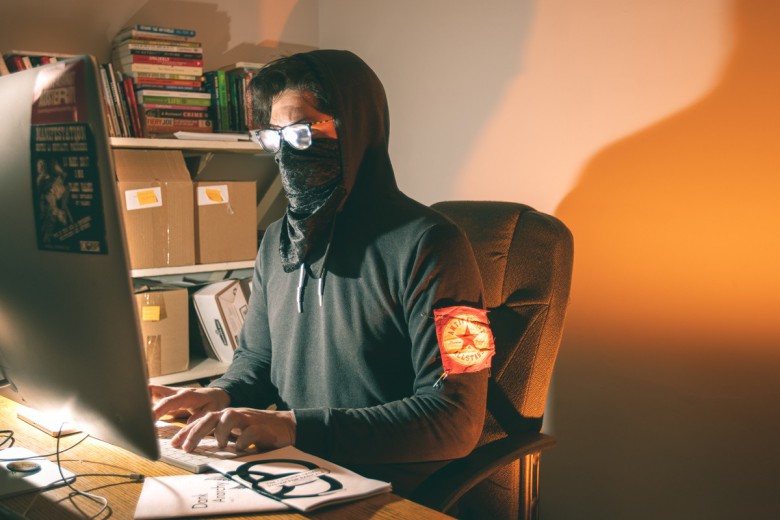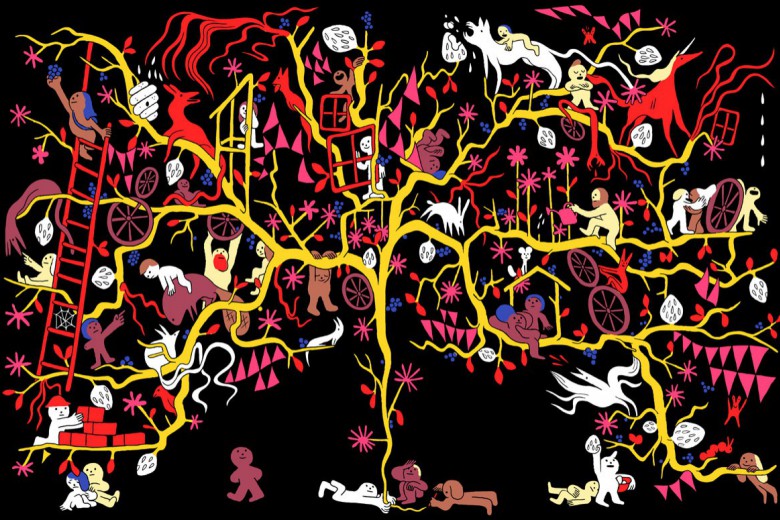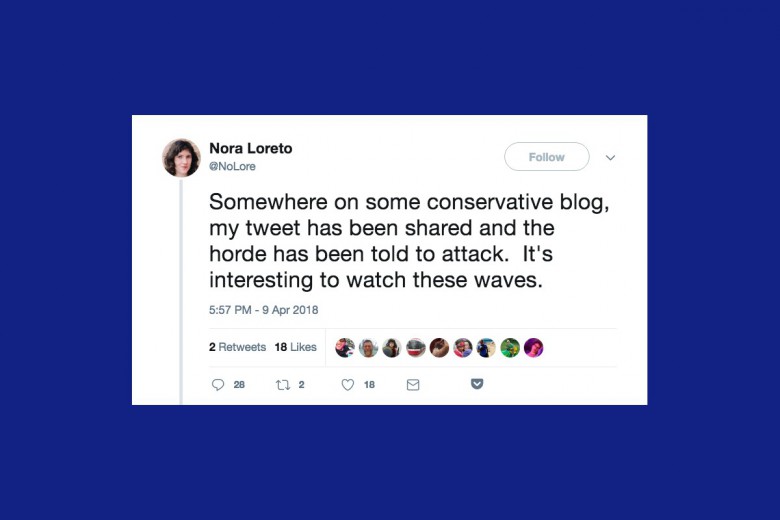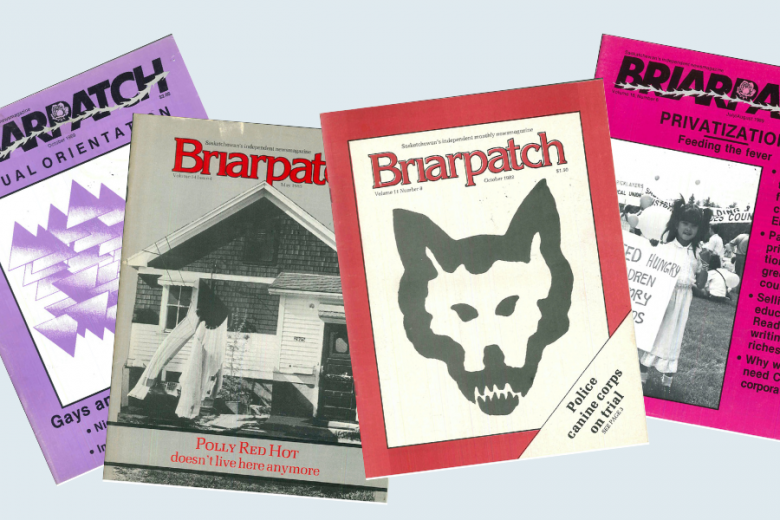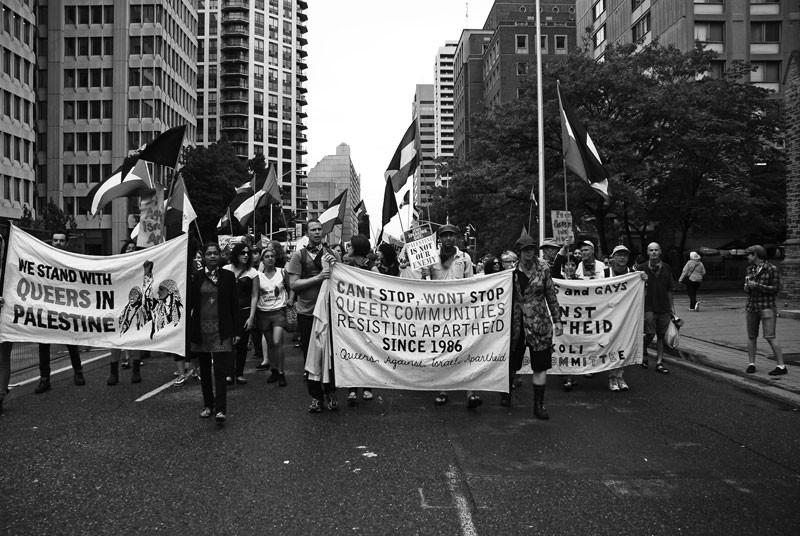
With Toronto’s 31st annual Pride Parade fast approaching, the legacy of last year’s controversial attempted banning of the group Queers Against Israeli Apartheid from the Parade continues to resonate today. On May 21, 2010, it was leaked that the board of directors of Pride Toronto had banned the use of the term “Israeli Apartheid” at the 2010 Parade. Pressured to respond to pro-Israel lobbying against the involvement of the Toronto-based group Queers Against Israeli Apartheid (QuAIA), Pride’s board of directors banned the phrase (effectively banning the group) in an attempt to appease those pushing for QuAIA’s exclusion, while apparently trying to minimize the local fallout by not directly banning the group itself. The news set off a tidal wave of opposition in the local queer and trans community, which ultimately resulted in the ban being lifted just days before the Parade, on June 23.
Underlying the ban and the resulting anti-censorship campaign was a complex web of actors and interests, including pro-Israel lobbyists from the Canadian Jewish Congress, the Friends of Simon Wiesenthal Center for Holocaust Studies, B’nai Brith Canada, city politicians, local activists and participants in the annual Pride Parade. Pride Toronto’s month-long ban inspired others across Canada to march in Edmonton, Montreal, Vancouver and Ottawa Pride Parades projecting similar messages and including the phrase “Israeli Apartheid.” No one could have anticipated the widespread impact of QuAIA’s participation in Toronto Pride on the local Toronto scene, across Canada and internationally.
Why Queers Against Israeli Apartheid?
Queers Against Israeli Apartheid formed in Toronto in 2008, comprising a small but diverse group of local activists who had become increasingly concerned with the use of gay rights to justify the Israeli government’s occupation of Palestine and apartheid policies towards Palestinian people. The group initially had three goals: first, to disrupt the use of gay identity and gay rights to validate an apartheid regime; second, to encourage Toronto’s queer community to learn more about the Israel/Palestine conflict and mobilize local queers to become more politically active; and third, to offer support to the growing movement of queer Palestinian activists struggling within Israel and Palestine.
QuAIA’s participation in the Toronto Pride Parade emerged as a response to Israel’s pinkwashing campaign. Pinkwashing, the use of gender, sexual and gay rights to validate a state or other institution and detract from its violations of human rights, has been increasingly deployed in Israel’s “Brand Israel” campaign, which was launched in Toronto in 2006.
Israel’s pinkwashing functions in two ways. First, it appeals to LBGT people in Canada by showcasing how Israel grants freedom and rights to its sexual minority citizens, including same-sex marriage and adoption laws, and cosmopolitan living in gay-friendly Tel Aviv. What is omitted are the ways that Palestinians are excluded from these rights and are often placed in even more precarious conditions if living without documentation within Israel. Also omitted is the pervasive homophobia that remains within many sectors of Israeli society.
Second, these rights for Israeli citizens are promoted as ammunition in debates in defence of Israel. Despite the advances Israel has made in its legislation, rights are not exchangeable. Recognizing gay rights does not validate the continued violation of Palestinian rights under occupation and apartheid.
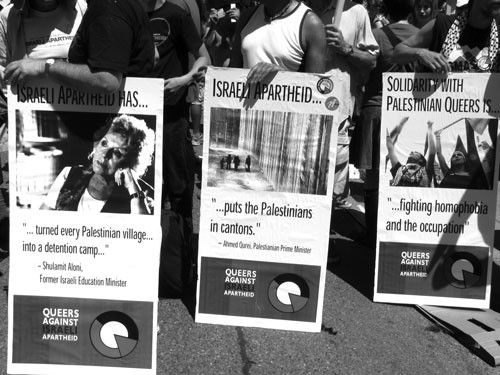
How it all began
QuAIA gained little public attention in its first year of activity. By June 2009, however, the group got its first splash of attention after a May 27 National Post article pre-emptively announced that the group had been banned from the 2009 Pride Parade. Following a flurry of letters and calls from the public, Pride clarified that in fact no ban had been made. In the year that followed, however, it became increasingly clear that Pride’s executive director, Tracey Sandilands, and members of the board were working with local gay lawyer Martin Gladstone, Pride’s conservative PR firm Navigator, pro-Israel lobbyists and city politicians to push QuAIA out of the 2010 Parade. Leaning on vague language in the city’s anti-discrimination policy in conjunction with opaque administrative policies, Pride announced in early March 2010 that they would implement a process for vetting political messaging in the Parade. The announcement – clearly aimed at censoring QuAIA – was met with community outrage. A “Don’t Sanitize Pride” campaign was quickly launched in response, forcing Pride to retract this policy in just two weeks.
The ban of “Israeli Apartheid”
By the end of March, QuAIA’s participation in the Parade had come under open attack as city councillors, mayoral candidates and corporate donors threatened that if QuAIA was not banned, Pride funding would be at risk. The City of Toronto’s anti-discrimination policy was increasingly distorted to justify the call for a ban, suggesting that the words “Israeli Apartheid” constituted hate speech and created an atmosphere where people would feel unsafe or unwelcome. On May 13, local queer media outlet Xtra! exposed clear evidence that Pride Toronto and the City had been colluding for months to censor QuAIA at Pride 2010. The ban was made public the following week on May 21 in the Toronto Sun.
Despite Pride’s assertion that actual members of QuAIA were not banned, simply the phrase “Israeli Apartheid,” the public quickly identified this as an attack on freedom of speech. Community groups mobilized swiftly in response, launching a campaign under the newly formed Pride Coalition for Free Speech to compel Pride to reverse its decision. At a mid-June press conference roughly 20 former Toronto Pride honourees, award winners, and grand marshals returned their awards and renounced their titles in opposition to Pride’s censorship. Under increasing pressure and scrutiny from the local queer and trans community, Pride reversed its decision on June 23, little more than a week before the Parade date.
Is calling Israel an apartheid state anti-Semitic?
Central to the pro-Israel lobby’s attack on QuAIA and Pride is the campaign to equate criticism of Israel with hate speech. From the Legislative Assembly of Ontario’s condemnation of Israeli Apartheid Week in 2010 to the formation of the Canadian Parliamentary Coalition to Combat Antisemitism, there has been a growing attempt to claim that labelling Israel an apartheid state is anti-Semitic.
The International Convention on the Suppression and Punishment of the Crime of Apartheid, adopted by the United Nations General Assembly in 1973, defines apartheid as “inhuman acts committed for the purpose of establishing and maintaining domination by one racial group of persons over any other racial group of persons and systematically oppressing them.” Over the last decade, the valid description of Israel as an apartheid state has gained currency, especially following the construction of Israel’s separation wall. Public figures such as Archbishop Desmond Tutu, Nelson Mandela, Naomi Klein, Israeli historian Ilan Pappé, UN Special Rapporteur John Dugard, and former U.S. president Jimmy Carter have argued that Israel’s policies toward Palestinians constitute apartheid.
How does a concept that aims to identify and describe the practice of racialized injustice come to be so contentious? The crux lies in the equation of the Israeli state with the Jewish people. Typically, the argument follows that criticism of Israel’s policies are disguised attacks on the rights of Jewish people to self-determination and security. This rhetoric erases the voices of dissenting Jews, who do not identify with the Israeli state as their representative. It also misuses the language of anti-hate speech to silence valid criticism of state policy. While the problem of anti-Semitism must be addressed – especially neo-Nazism in Canada and xenophobia across Europe – the conflation of legitimate criticism of state violence and repression with hate speech is not only wrong, it is also severely damaging.
When lobbyists called on Pride to ban QuAIA from the Parade, they argued that the term “Israeli Apartheid” was hateful because it implies that the Israeli state is racist, effectively hurting the reputation and image of Israel, and by extension Israel’s supporters in Canada. Pro-Israel lobbying at Pride also plays a part in the larger realm of conservative activism that is increasingly influencing popular interpretations of social struggles. In the case of QuAIA and Pride, for example, lobbyists influenced Pride’s position by launching economic threats and misinterpreting anti-discrimination policy to equate protection from injustice with protection from discomfort.
What’s next for QuAIA
Although the controversy over QuAIA’s involvement in Toronto Pride propelled the debate of Israeli Apartheid into the public, the group is not fundamentally about the right to march in the Pride Parade. QuAIA’s primary project is to combat pinkwashing. In the lead-up to Pride 2011, the group will launch a campaign calling on queers to join the Boycott, Divestment and Sanction of Israel movement as a peaceful tactic to pressure the Israeli government to comply with international law. It is also working to build stronger connections with other groups doing similar work internationally to help bring the issue of pinkwashing to the forefront of larger queer movements. Recent attacks on the LGBT Community Center in New York for hosting an Israeli Apartheid Week event are not isolated incidents. As the successful fight against Toronto Pride’s banning of QuAIA demonstrates, solidarity work is at the heart of queer struggles, and it is only through collective action that we can effectively defend these spaces.
For more information on QuAIA, visit queersagainstapartheid.org


